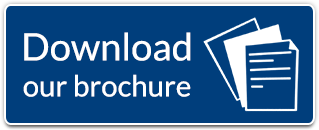Building Effective Corporate Work TeamsOrganisations consists of individuals who are part of different teams. The effectiveness of the teams largely depends on how they work together to achieve a collective goal. The most important characteristic of teams is that it creates synergy and the collective performance of the team is always better than individual performance. Teams posses several characteristics like interdependence, having common goals, having congruence and cohesion between achievement of individual and team goals. Characteristics of Effective Work TeamsEffective teams are the foundation of every successful organization. Organisations without teams that work well together often struggle, while effective teams help to improve quality, facilitate the completion of projects and increase productivity and efficiency. For Teams to work at optimal levels, they must establish a team charter for overall success of the organisation. Following are some considerations and characteristics of developing effective working teams. Shared Vision & Goals Effective Teams have a common vision, mission and Goals that are shared and accepted by the entire team. Teams work in various workgroups and set SMART goals every quarter and strive to achieve them and up the bar to continue accepting challenges for continuous learning and growth as the team progresses ahead and sets new records each time. Clear Roles and Tasks defined for every leader Every Team Member has a clear understanding on his assigned role and will be in regular touch with other members in the workgroup to continue on the learning and growth path. Standard agreed processes and practices. All common processes, guidelines and procedures are discussed, accepted and followed by all team members. All new processes and procedures are open for consultation and debate before being enforced. Mutual Trust, Support & Respect The Effective Teams foundation is built on Trust and respect for each other, which they regard in the highest form possible. Effective Teams believe that every member has a strong area and a weak areas. They not only trust each other on the strengths but are open, honest and vulnerable on the weak areas as well. They do not shy away from showing their weaknesses and will try to complement their weakness by asking for support and help from other member who are strong in those areas and strive to improve each others weak areas as they continue to learn and grow. Shared Power and Leadership Every Team Member is treated as Equal. Effective Teams have the right balance between accepted authority and the freedom of shared power and leadership, where each and every member takes initiative, ownership and contributes equally to the teams decision making process. Open Communication and Transparency. Effective Teams communicate and communicate and communicate and keep everyone posted and informed on whatever they do through various channels. They keep all processes, transactions, accounts and communication transparent and in reach of everyone. Effective Teams believe in collective wisdom through good and strong communication. They give and receive constructive feedback all times to help each other improve and excel. They always assert when the situation demands and are supportive when others are in need and provide feedback to help each other improve. Shared Responsibility and Accountability Effective Teams share collective responsibility of every other to work on his or her assigned roles and also hold self and other responsible and accountable for performing the role and address nonperformance and gaps through constructive feedback and mentoring. Teamwork, Cooperation and Unity Effective Teams value Teamwork, cooperation and unity the highest. They do their best to contribute in a Team environment and reach out to fellow members and help them whenever they see a need or an opportunity to do so. They stand strong together in face of difficulties and show unity as a One Team. Learning and bringing abilities, talent& resources together Effective Teams believe in continuous learning and exchange of skills. They take up roles as mentors, advisers, coaches and trainers to impart skills through various workshops, one to one mentoring and all channels of informal and formal learning. Appreciating, Motivating and Encouraging each other Effective Teams appreciate and encourage even the smallest contribution towards the organisation and regularly recognize and reward all who put in time and effort to achieve excellence through work. Training, Mentoring and Coaching each other. Effective Teams not only engage in constructive feedback but will engage in training, mentoring and coaching each other collectively so they can improve on various areas for growth of the entire organisation. Assigned mentors will do their best to share their experience and knowledge and pass the learning's to others. Checking Results and Performance Effective Teams not only hold each other responsible and accountable but will measure the results through open dialogue, common feedback from team members, feedback from customers, surveys and overall statistics on various performance indicators and growth parameters of the organisation. Having fun and celebrating the achievements Effective Teams not only believe in hard work, achieving goals and giving good results but strongly believe in celebrating the achievements and contributions and recognizing fellow team members at various events and occasions spread across the year. Developing Effective Work TeamsAt outlife we facilitate development of effective work teams through creation and adoption of team values, charter and a vision using the power of experiential learning and group process facilitation. A Team Charter goes a long way in developing congruence, cohesion and commitment in the team towards one goal and achieve results. Get in touch with us to know more about engaging ways of developing effective work teams.
0 Comments
Your comment will be posted after it is approved.
Leave a Reply. |
Archives
July 2024
Categories
All
|
- Home
-
Corporate
-
Team Building
>
- Team Building Activities
- Corporate Team Bonding
- Fun Team Outing
- Quotes on Teamwork
- In office Team Building Activities
- 5C Key Elements for Team Building
- Special Team Building >
- Virtual Team Building
- Top 10 Team Building Activities
- Team Building Bangalore
- Team Building Hyderabad
- Team Building Interventions
- Outbound Training >
- Leadership Programs >
- Team Outing >
- Employee Engagement >
- Behavioral Skills >
- Team Development >
- Corporate Adventure >
-
Team Building
>
- Schools
- Individuals
- Clients
- Gallery
- About us
- Articles
- Blog
- Experiential Leadership Training
- Strategic Leadership Training
- Home
-
Corporate
-
Team Building
>
- Team Building Activities
- Corporate Team Bonding
- Fun Team Outing
- Quotes on Teamwork
- In office Team Building Activities
- 5C Key Elements for Team Building
- Special Team Building >
- Virtual Team Building
- Top 10 Team Building Activities
- Team Building Bangalore
- Team Building Hyderabad
- Team Building Interventions
- Outbound Training >
- Leadership Programs >
- Team Outing >
- Employee Engagement >
- Behavioral Skills >
- Team Development >
- Corporate Adventure >
-
Team Building
>
- Schools
- Individuals
- Clients
- Gallery
- About us
- Articles
- Blog
- Experiential Leadership Training
- Strategic Leadership Training
Our Programs
OUR TRAINING DELIVERY LOCATIONS:
Ahmedabad, Bangalore, Chennai, Kolkata, Delhi, Goa, Hyderabad, Mumbai, Pune, Vizag - India
Ahmedabad, Bangalore, Chennai, Kolkata, Delhi, Goa, Hyderabad, Mumbai, Pune, Vizag - India


 RSS Feed
RSS Feed
